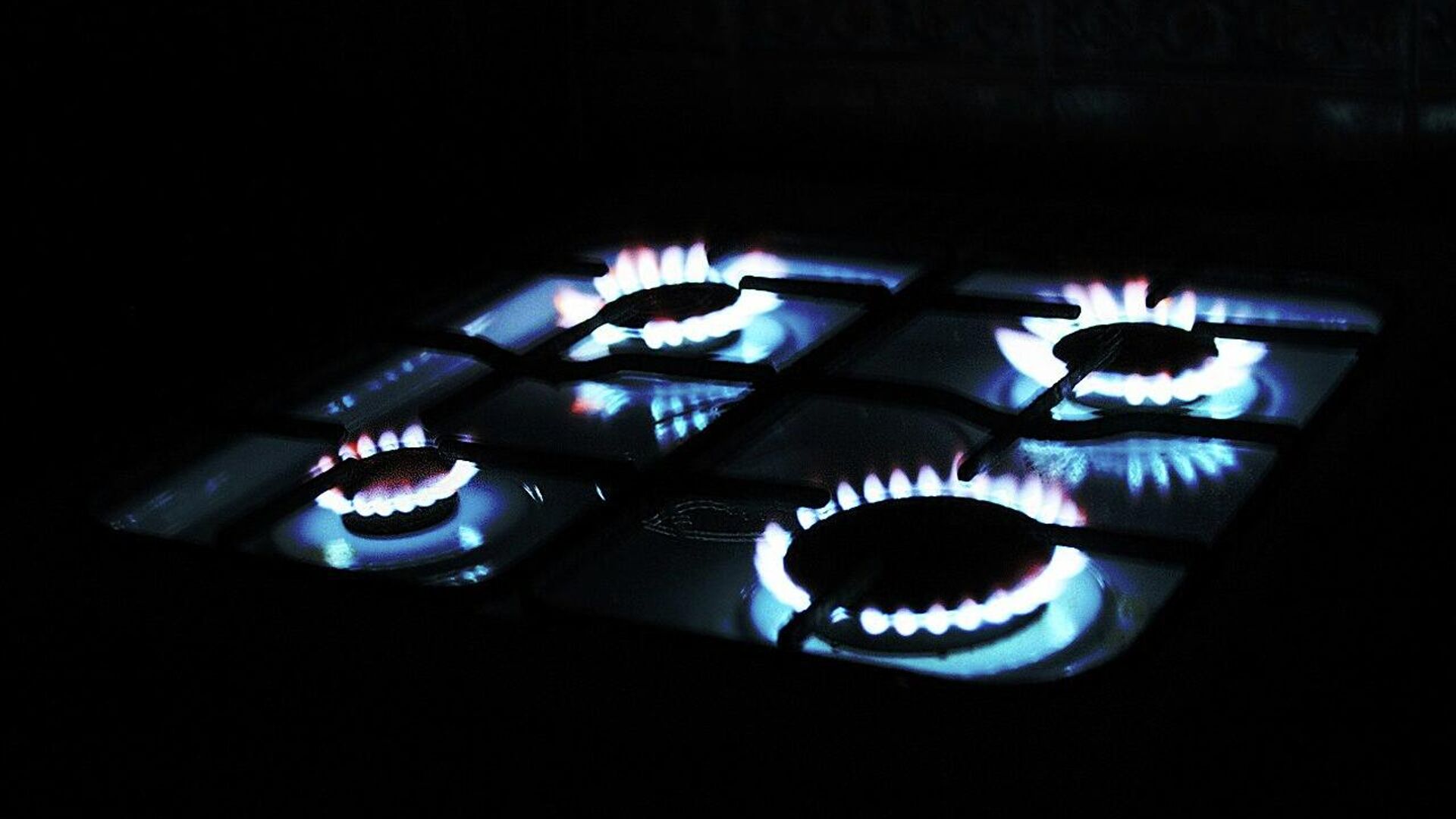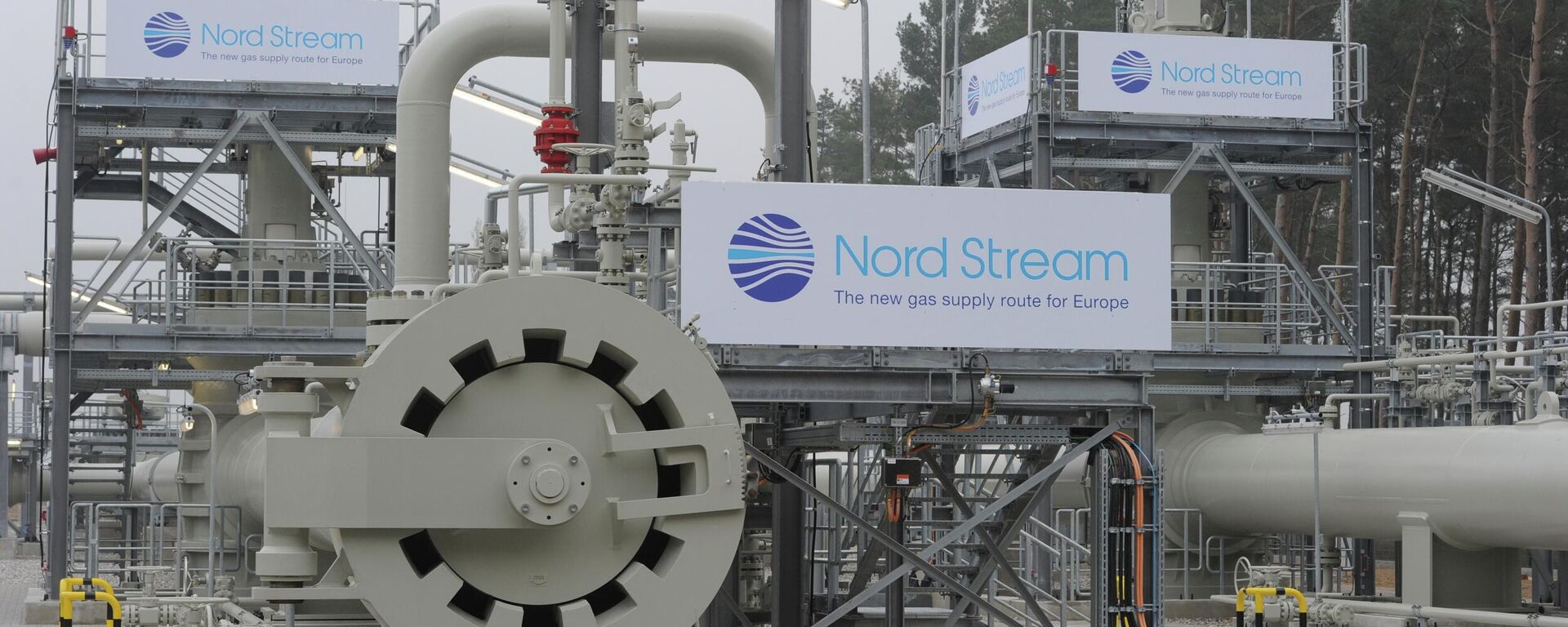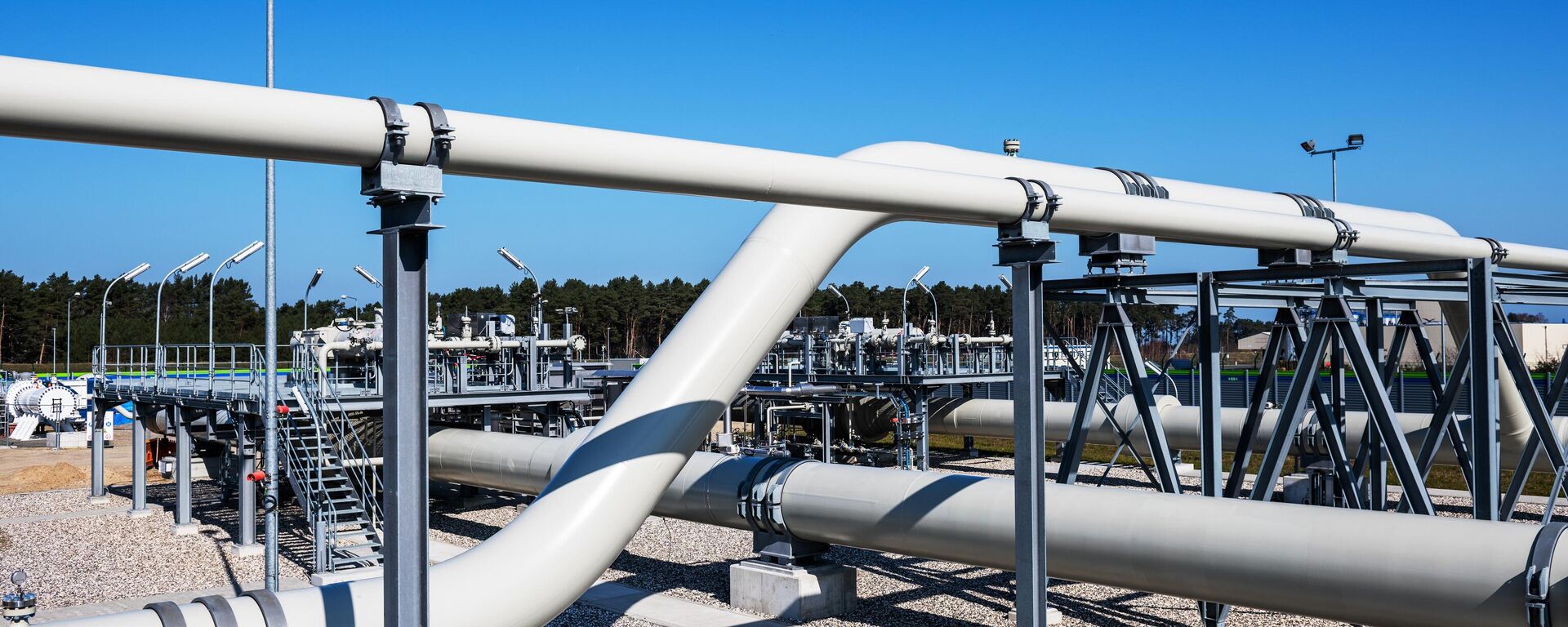https://sputnikglobe.com/20220717/germany-may-fail-to-get-through-winter-without-russian-gas-head-of-federal-network-agency-warns-1097393319.html
Germany May Fail to ‘Get Through Winter Without Russian Gas’, Head of Federal Network Agency Warns
Germany May Fail to ‘Get Through Winter Without Russian Gas’, Head of Federal Network Agency Warns
Sputnik International
Europe has been suffering from soaring gas prices over the past few months, due to a fuel crisis caused by the “severe” sanctions that the US and its allies... 17.07.2022, Sputnik International
2022-07-17T09:37+0000
2022-07-17T09:37+0000
2022-08-06T08:32+0000
germany
nord stream
gas pipeline
prices
winter
supplies
energy crisis in europe
https://cdn1.img.sputnikglobe.com/img/07e5/09/1c/1089475115_0:67:1280:787_1920x0_80_0_0_32120d59bad3f63f34d127755b653495.jpg
Although Germany's natural gas storage facilities are nearly 65% full, “it’s still not enough to get through the winter without Russian gas”, Federal Network Agency (Bundesnetzagentur) head Klaus Mueller has told the newspaper Bild am Sonntag.The Bundesnetzagentur chief made it clear that “there is no scenario” in which Germany will remain “completely without gas.” According to him, even if Russian deliveries come to a halt, Berlin will “still get some [gas] from Norway, Holland and Belgium or, in the future, from the German liquid gas terminals.”The remarks come a few weeks after Mueller told the Funke media group that Germany has enough gas reserves to last just for one or two months in the event that gas supplies from Russia stop completely.On Monday, the pipeline’s operator, Nord Stream AG, announced that both strings of the gas pipeline had been stopped for maintenance work, including testing of mechanical components and automation systems. The work is expected to take place between July 11 and July 21.The Russian energy giant Gazprom previously had to significantly reduce its Nord Stream 1 gas supplies due to delays in maintenance work on turbines by German and Canadian companies. This forced Europeans to tap into gas volumes normally reserved for winter, with some countries considering returning to coal production.Kremlin spokesman Dmitry Peskov stressed in this vein that Moscow “completely” rejects “any hints or direct statements that the Russian side is using gas or oil as a weapon of political pressure.”The remarks followed the Kremlin spokesman insisting last month that the reduction in gas supplies via the Nord Stream gas pipeline was due to EU actions.The Kremlin spokesman explained that Russia's European partners have failed to return turbines after a major overhaul, so there is nothing to pump gas with. “This is a man-made crisis. It was created by the hands of the EU,” he said, pointing to the bloc’s obligation to “repair the equipment” and return it.In a separate development earlier this month, gas prices in Europe on the ICE exchange exceeded $1,700 per thousand cubic meters for the first time since March 10, growing by about 7%.In early March, gas prices in Europe, due to fears of a ban on the import of Russian energy resources amid the West’s sanctions against Moscow, skyrocketed to a historic high of $3,892 per thousand cubic meters.
https://sputnikglobe.com/20220713/gas-price-surge-reaffirms-germanys-erroneous-position-on-nord-stream-2-moscow-1097256663.html
https://sputnikglobe.com/20220707/german-economy-minister-urges-canada-to-send-turbine-for-nord-stream-to-germany-1097060847.html
germany
Sputnik International
feedback@sputniknews.com
+74956456601
MIA „Rossiya Segodnya“
2022
Oleg Burunov
https://cdn1.img.sputnikglobe.com/img/07e4/09/0b/1080424846_0:0:2048:2048_100x100_80_0_0_3d7b461f8a98586fa3fe739930816aea.jpg
Oleg Burunov
https://cdn1.img.sputnikglobe.com/img/07e4/09/0b/1080424846_0:0:2048:2048_100x100_80_0_0_3d7b461f8a98586fa3fe739930816aea.jpg
News
en_EN
Sputnik International
feedback@sputniknews.com
+74956456601
MIA „Rossiya Segodnya“
Sputnik International
feedback@sputniknews.com
+74956456601
MIA „Rossiya Segodnya“
Oleg Burunov
https://cdn1.img.sputnikglobe.com/img/07e4/09/0b/1080424846_0:0:2048:2048_100x100_80_0_0_3d7b461f8a98586fa3fe739930816aea.jpg
germany, nord stream, gas pipeline, prices, winter, supplies
germany, nord stream, gas pipeline, prices, winter, supplies
Germany May Fail to ‘Get Through Winter Without Russian Gas’, Head of Federal Network Agency Warns
09:37 GMT 17.07.2022 (Updated: 08:32 GMT 06.08.2022) Europe has been suffering from soaring gas prices over the past few months, due to a fuel crisis caused by the “severe” sanctions that the US and its allies, including those in the EU, have slapped on Russia over Moscow’s ongoing special military operation in Ukraine.
Although Germany's natural gas storage facilities are nearly 65% full, “it’s still not enough to get through the winter without Russian gas”, Federal Network Agency (Bundesnetzagentur) head Klaus Mueller has told the newspaper Bild am Sonntag.
He added that the country's ability to survive the winter depends, to a great extent, on “whether the gas will go through the Nord Stream 1 pipeline and in what quantity,” recalling that maintenance work on the pipeline is due to be completed on Thursday.
The Bundesnetzagentur chief made it clear that “there is no scenario” in which Germany will remain “completely without gas.” According to him, even if Russian deliveries come to a halt, Berlin will “still get some [gas] from Norway, Holland and Belgium or, in the future, from the German liquid gas terminals.”
The remarks come a few weeks after Mueller told the Funke media group that Germany has enough gas reserves to last just for one or two months in the event that gas supplies from Russia stop completely.
On Monday, the pipeline’s operator, Nord Stream AG, announced that both strings of the gas pipeline had been stopped for maintenance work, including testing of mechanical components and automation systems. The work is expected to take place between July 11 and July 21.
The Russian energy giant Gazprom previously had to significantly reduce its Nord Stream 1 gas supplies due to delays in maintenance work on turbines by German and Canadian companies. This forced Europeans to tap into gas volumes normally reserved for winter, with some countries considering returning to coal production.
Kremlin spokesman Dmitry Peskov stressed in this vein that Moscow “completely” rejects “any hints or direct statements that the Russian side is using gas or oil as a weapon of political pressure.”
“This is not the case. Russia is consistently fulfilling all its obligations, and Russia is still able to guarantee the full energy security of Europe. And Russia is able to guarantee the prevention of sky-high bills for electricity and heat, which taxpayers in European countries are now receiving,” Peskov told reporters earlier this month.
The remarks followed the Kremlin spokesman insisting last month that the reduction in gas supplies via the Nord Stream gas pipeline was due to EU actions.
“From a technological point of view, the mechanical infrastructure of this pipeline is suffering because of the sanctions that the European Union has imposed [on Russia shortly after Moscow launched a special operation to demilitarize and de-Nazify Ukraine],” Peskov pointed out.
The Kremlin spokesman explained that Russia's European partners have failed to return turbines after a major overhaul, so there is nothing to pump gas with. “This is a man-made crisis. It was created by the hands of the EU,” he said, pointing to the bloc’s obligation to “repair the equipment” and return it.
In a separate development earlier this month, gas prices in Europe on the ICE exchange exceeded $1,700 per thousand cubic meters for the first time since March 10, growing by about 7%.
In early March, gas prices in Europe, due to fears of a ban on the import of Russian energy resources amid the West’s sanctions against Moscow, skyrocketed to a historic high of $3,892 per thousand cubic meters.





